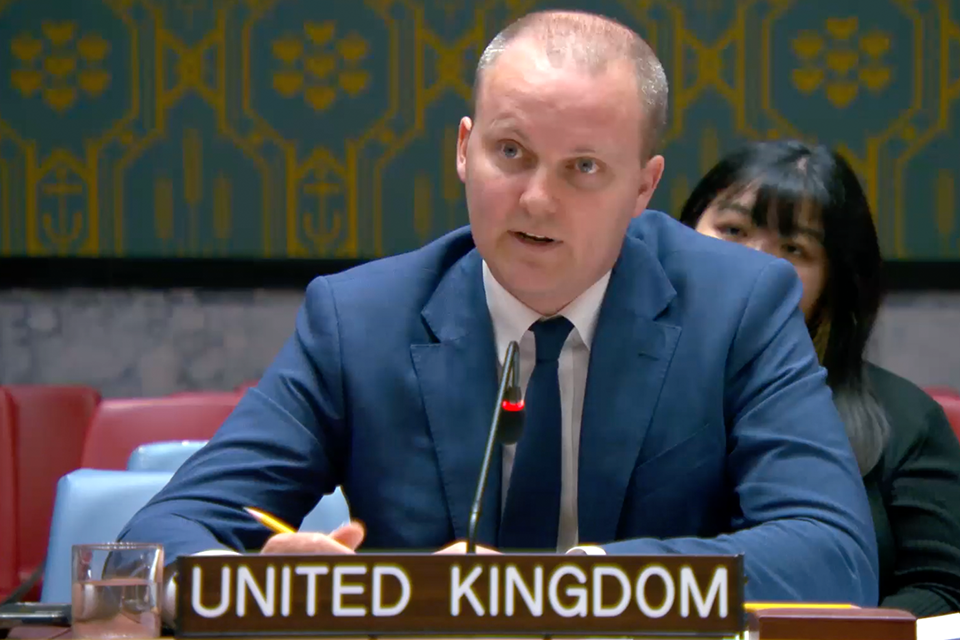The Taliban must reverse policies restricting human rights: UK statement at the UN Security Council
Statement by Fergus Eckersley, UK Political Counsellor, at the Security Council meeting on Afghanistan.

First, while it is welcome that the Taliban have signalled their intention to attend this meeting in Doha, they must also show their intention to change how they are acting and to listen to the concerns of the Afghan people.
The international community should remain united and clear on the urgent need for the Taliban to meet their obligations and reverse all polices restricting human rights and fundamental freedoms in Afghanistan, not least for women and girls. This includes the Taliban’s decree banning girls from secondary school, now over 1,000 days since its pronouncement. This is 1,000 days too long with half the population left behind. It is a wholly unjustifiable and self-defeating policy. Addressing these restrictions must remain front and centre for the international community in all of our engagement, as Ms. Wafeq said.
Second, with the 2024 Afghanistan Humanitarian Needs and Response Plan only 20% funded, we urge the international community to increase their support. The United Kingdom is on track to deliver over $190 million dollars in aid this year, helping to meet basic needs, including through the provision of lifesaving food, clean water, and sanitation. And in light of continued restrictions by the Taliban, we continue to support delivery of education through bilateral and multilateral contributions to NGOs and UN partners.
Finally, nearly six months since the adoption of Security Council resolution 2721, we call on the UN to continue to drive forward progress on the recommendations set out in the Special Coordinator’s independent assessment. A Special Envoy is urgently needed to bring together the international community and to minimise the risk of Afghanistan’s challenges spilling over into the region and beyond.
The United Kingdom stands ready to work constructively with all parties and stakeholders – in Afghanistan and beyond – in this shared endeavour towards an Afghanistan at peace with itself, its neighbours, and the international community.